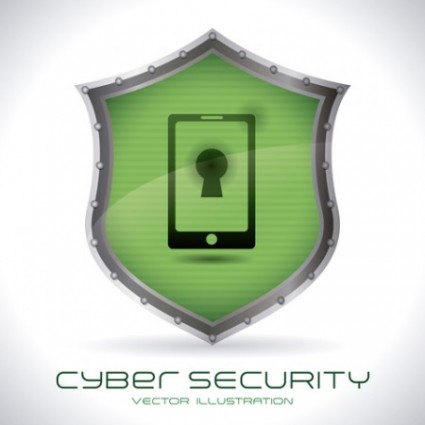 Not surprisingly, Verizon’s 2015 Data Breach Investigations Report found that data breaches continue to be prevalent and costly. The cost per breach is higher for small businesses than for large firms. For example, a breach of 1,000 records results in business losses of between $52,000 and $87,000 ($52 to $87 per record), while a breach of 10 million records triggers a loss of only $0.21 to $0.52 per record). Breaches in small firms don’t necessarily result from sophisticated hackers; they occur when employees open phishing email that contains malware.
Not surprisingly, Verizon’s 2015 Data Breach Investigations Report found that data breaches continue to be prevalent and costly. The cost per breach is higher for small businesses than for large firms. For example, a breach of 1,000 records results in business losses of between $52,000 and $87,000 ($52 to $87 per record), while a breach of 10 million records triggers a loss of only $0.21 to $0.52 per record). Breaches in small firms don’t necessarily result from sophisticated hackers; they occur when employees open phishing email that contains malware.
National Action Plan
Last month, the White House announced a Cybersecurity National Action Plan. Much of the plan focuses on enhancing national cyber security. However, the plan also wants to empower Americans to secure their online accounts. Toward this end, the National Cyber Security Alliance is working to develop ways that will help protect personal information in this digital age.
The Council of Better Business Bureaus is supporting this action plan.
Tips from the federal government
The Federal Communications Commission (FCC) has provided the following 10 tips to enhance your cyber security:
- Train employees in security principles. Establish basic security practices and policies for employees, such as requiring strong passwords and establishing appropriate Internet use guidelines that detail penalties for violating company cyber security policies. Establish rules of behavior describing how to handle and protect customer information and other vital data.
- Protect information, computers, and networks from cyber attacks. Keep clean machines: having the latest security software, web browser, and operating system are the best defenses against viruses, malware, and other online threats. Set antivirus software to run a scan after each update. Install other key software updates as soon as they are available.
- Provide firewall security for your Internet connection. A firewall is a set of related programs that prevent outsiders from accessing data on a private network. Make sure the operating system’s firewall is enabled or install free firewall software available online. If employees work from home, ensure that their home system(s) are protected by a firewall.
- Create a mobile device action plan. Mobile devices can create significant security and management challenges, especially if they hold confidential information or can access the corporate network. Require users to password protect their devices, encrypt their data, and install security apps to prevent criminals from stealing information while the phone is on public networks. Be sure to set reporting procedures for lost or stolen equipment.
- Make backup copies of important business data and information. Regularly backup the data on all computers. Critical data includes word processing documents, electronic spreadsheets, databases, financial files, human resources files, and accounts receivable/payable files. Backup data automatically if possible, or at least weekly and store the copies either offsite or in the cloud.
- Control physical access to your computers and create user accounts for each employee. Prevent access or use of business computers by unauthorized individuals. Laptops can be particularly easy targets for theft or can be lost, so lock them up when unattended. Make sure a separate user account is created for each employee and require strong passwords. Administrative privileges should only be given to trusted IT staff and key personnel.
- Secure your Wi-Fi networks. If you have a Wi-Fi network for your workplace, make sure it is secure, encrypted, and hidden. To hide your Wi-Fi network, set up your wireless access point or router so it does not broadcast the network name, known as the Service Set Identifier (SSID). Password protect access to the router.
- Employ best practices on payment cards. Work with banks or processors to ensure the most trusted and validated tools and anti-fraud services are being used. You may also have additional security obligations pursuant to agreements with your bank or processor. Isolate payment systems from other, less secure programs and don’t use the same computer to process payments and surf the Internet.
- Limit employee access to data and information, and limit authority to install software. Do not provide any one employee with access to all data systems. Employees should only be given access to the specific data systems that they need for their jobs, and should not be able to install any software without permission.
- Passwords and authentication. Require employees to use unique passwords and change passwords every three months. Consider implementing multifactor authentication that requires additional information beyond a password to gain entry. Check with your vendors that handle sensitive data, especially financial institutions, to see if they offer multifactor authentication for your account.
Cyber security plans
With these tips in mind you may want to create your own cyber security guide. The FCC has a cyberplanner that you can customize for your needs.
Consider including Virtual Private Networks (VPNs) in your plan. This type of subscription service routs your traffic through an encrypted location so that even if you’re intercepted, you won’t be decipherable. This strategy is especially helpful if you travel and use public Wi-Fi at airports and hotels.
Find more online security tips here.
Conclusion
If you feel particularly vulnerable, you can bring in cyber security experts. This is a pricey solution, but may be less costly than being hacked. You can learn more about cyber security with a 30-minute online program from the SBA on Cybersecurity for Small Businesses.


